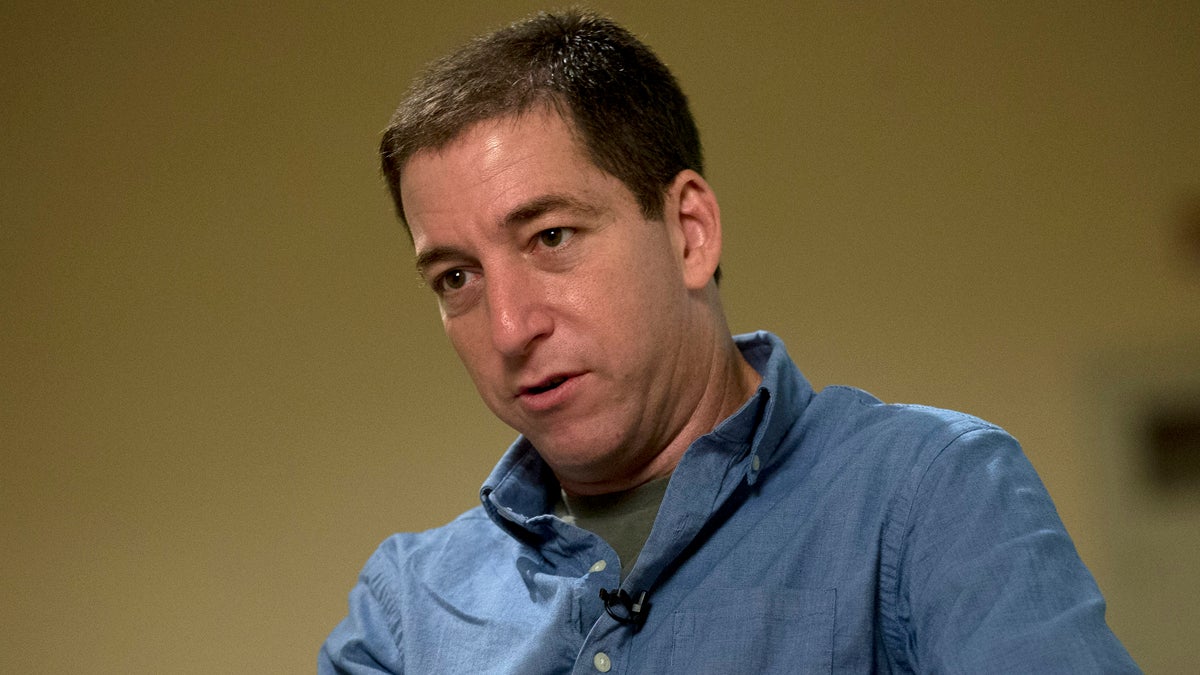Glenn Greenwald, face of the new journalism

Journalist Glenn Greenwald speaks during an interview with the Associated Press in Rio de Janeiro, Brazil, Sunday, July 14, 2013. Greenwald, The Guardian journalist who first reported Edward Snowden's disclosures of U.S. surveillance programs says the former National Security Agency analyst has "very specific blueprints of how the NSA do what they do."(Silvia Izquierdo/AP Photo)
Glenn Greenwald, who plumbed the Edward Snowden files and helped break the NSA spying story, has won a George Polk Award for National Security Reporting.
This prestigious journalism honor, announced yesterday, will no doubt infuriate the old-guard critics who insist that Greenwald isn’t even a journalist.
But the award – which he shared with two reporters from The Guardian, and another from The Washington Post – does far more than validate his status as a journalist. It acknowledges that the traditional definition of journalism is no longer relevant in this era of polarized discourse and digital upheaval.
Greenwald has never worked for any of the big-foot media outlets. He didn’t come up the old-fashioned way, which virtually required that cub reporters cover local cops and courts before tackling big assignments – schooled at every step in the dictates of objective “on-the-one-hand, on-the-other-hand” journalism. No, his “brand” is very different. He was a First Amendment lawyer who launched a personal blog that mixed reporting and opinion, later took the blog to left-leaning Salon.com, and subsequently to The Guardian, where he posted NSA scoops last June, based on Snowden’s purloined files.
And most importantly, he thinks that traditional journalistic objectivity is a crock. He thinks that journalists should declare their opinions up front. He said so last October, during a lengthy colloquy with former New York Times executive editor Bill Keller. The whole thing is worth a read – it’s journalism’s equivalent of a Frazier-Ali boxing match (Greenwald himself is highly opinionated) – but this was the gist:
Greenwald argued that the objectivity ethos has “produced lots of atrocious journalism and some toxic habits that are weakening the profession. A journalist who is petrified of appearing to express any opinions will often steer clear of declarative sentences about what is true, opting instead for a cowardly and unhelpful ‘here’s-what-both-sides-say-and-I-won’t-resolve-the-conflicts’ formulation….Worst of all, this model rests on a false conceit. Human beings are not objectivity-driven machines. We all intrinsically perceive and process the world through subjective prisms. What is the value in pretending otherwise?”
Keller disagreed: “The thing is, once you have publicly declared your ‘subjective assumptions and political values,’ it’s human nature to want to defend them, and it becomes tempting to omit or minimize facts, or frame the argument, in ways that support your declared viewpoint. And some readers, knowing that you write from the left or right, will view your reporting with justified suspicion.”
But Greenwald contended that, ultimately, “the only real metric of journalism that should matter is accuracy and reliability. I personally think honestly disclosing rather than hiding one’s subjective values makes for more honest and trustworthy journalism. But no journalism – from the most stylistically ‘objective’ to the most brazenly opinionated – has any real value unless it is grounded in facts, evidence, and verifiable data.”
Facts, evidence, and verifiable data…There it is, the bottom line. Greenwald won the Polk Award in part because his breakthrough reporting on the NSA has been accurate; nobody has proven it to be otherwise. Point-of-view journalism is perfectly fine, as long as the point of view is factually grounded. Indeed, Polk Award curator John Darnton (a former New York Times reporter) found it to be so. He lauded Greenwald’s “dogged pursuit of stories that otherwise would not have seen the light of day. Repercussions of the NSA stories in particular will be with us for years to come.”
This award is also a frontal rebuke to the establishment types who have been dissing Greenwald since the NSA story broke. Steven Rattner, a Wall Street financier who pops up frequently on MSNBC’s Morning Joe, sneered last July that “Greenwald is not a journalist, he’s an activist portraying himself as a journalist.” A month earlier, Meet the Press host David Gregory charged that Greenwald had “aided and abetted Snowden,” perhaps criminally; in fact, Gregory said, “this is the problem with somebody who claims that he is a journalist.”
But as the Polk judges rightly recognized, Greenwald meets the definition of journalist – joining the long line of reporters who have broken accurate stories after sifting classified documents purloined by whistle-blowers. And he’s still working the Snowden material, as evidenced this morning on The Intercept, the new online magazine bankrolled by eBay billionaire Pierre Omidyar. Greenwald has decided to hang his digital shingle on that site. In a revolutionary era of new journalistic paradigms, who needs the old media?
——-
Memo to American black guys:
(1) If you’re venturing out of the ‘hood at night, don’t wear a hoodie. (2) If your car breaks down, don’t knock on a white person’s door asking for help or run toward the cops for help. (3) If a white person in a parking lot tells you to turn down the car music, just say “Yassuh.”
Follow me on Twitter, @dickpolman1
WHYY is your source for fact-based, in-depth journalism and information. As a nonprofit organization, we rely on financial support from readers like you. Please give today.

